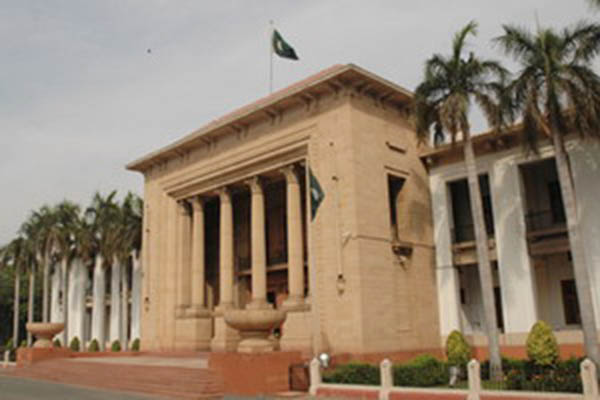Tahir Maqsood Chheena
The 18th Amendment to the Constitution of Pakistan passed in 2010, was a significant step towards enhancing federalism and provincial autonomy in the country. The Amendment aimed to address the historical imbalances and grievances of the provinces, especially in terms of legislative, administrative, and fiscal powers. The Amendment also sought to strengthen the democratic culture of Pakistan by providing more power to elected representatives and reducing the role of the military and bureaucracy in governance.
The Amendment abolished the concurrent legislative list, which contained 47 subjects that were in the domain of both the federal and provincial governments. The subjects were transferred to the exclusive legislative list of the provinces, giving them more authority and responsibility over matters such as education, health, environment, labour, social welfare, etc. This was a major shift from the centralized system that had prevailed since 1977 under military rule.
The Amendment enhanced the role and functions of the Council of Common Interests (CCI), a constitutional body dealing with inter-governmental issues and disputes. The CCI was made more representative, inclusive, and accountable by increasing its membership, frequency of meetings, and scope of work. The CCI was also given the power to formulate and regulate policies on matters such as natural resources, electricity, census, etc.
The Amendment devolved more fiscal resources and revenue-sharing powers to the provinces by increasing their share in the National Finance Commission (NFC) Award from 50% to 57.5%. The NFC Award is a constitutional mechanism that determines how the federal divisible pool of taxes is distributed among the provinces. The Amendment also introduced new criteria for horizontal distribution among the provinces, such as poverty and backwardness, in addition to population.
The Amendment introduced several constitutional safeguards and checks and balances to protect provincial autonomy and prevent arbitrary interference by the federal government. For instance, the Amendment required the consent of the provincial assemblies to impose emergency or governor’s rule in any province. It also prohibited the dissolution of provincial assemblies by the president or the governor without a vote of no confidence. It also ensured that no province was deprived of its due share in any federal institution or service.
The 18th Amendment has been widely hailed as a landmark reform that has strengthened federalism and provincial autonomy in Pakistan. However, it has also faced some challenges and criticisms in its implementation and outcomes.
Please, subscribe to the monthly magazines of republicpolicy.com
Some of the issues and gaps that have emerged include the lack of capacity and readiness of the provinces to effectively manage and deliver on the devolved subjects and functions. Many provinces have faced difficulties in establishing new institutions, hiring qualified staff, allocating sufficient budgets, ensuring quality standards, and coordinating with other stakeholders on devolved matters. Some provinces have also been reluctant or slow to devolve further powers to local governments, which are essential for participatory and responsive governance at the grassroots level. Then, the federal government also denied the provinces the right to establish their own administration. For example, law and order is a provincial power, and policing is purely a provincial administrative matter. However, the federal government needs to allow the provincial governments to raise provincial police services PPS. Therefore, provincial administrative services are vital for administrative federalism.
There is a need for more dialogue and cooperation among the federal and provincial governments on matters of common interest and national importance. Despite the enhanced role of the CCI, there have been instances of conflict and deadlock between the centre and the provinces on issues such as water distribution, energy projects, census results, etc. There is also a lack of trust and transparency among some provinces on matters such as revenue collection and sharing.
The persistence of regional disparities and inequalities among the provinces in terms of development indicators, resource allocation, service delivery, etc, are still bigger challenges. Some provinces, especially Balochistan and Khyber Pakhtunkhwa, have lagged behind others in terms of economic growth, social welfare, infrastructure development, etc. There is also a perception among some smaller provinces that they need to get their fair share in federal institutions and projects.
The 18th Amendment has been a milestone in Pakistan’s constitutional history and redefined its federal structure and dynamics. However, it is not a panacea for all the problems and challenges that face Pakistan as a diverse and complex federation. It requires constant review, revision, and refinement to meet its objectives and aspirations. It also requires political will, institutional capacity, public awareness, and civic engagement to make it work effectively and efficiently for the benefit of all Pakistanis.
Then, the legislative and fiscal part of federalism has been implemented, but the administrative part of the 18th Amendment still needs to be implemented. It means that the central administration should not control the affairs of the provinces. For example, the chief secretary and inspector general of police are federal employees and appointed by the federal government to control the affairs of the provinces. Further, the federal PAS, PSP and PAAS services can not work on the posts connected with the affairs of the provinces. The 18th amendment can only be functional when the administrative part of the federalism is implemented in Pakistan. Furthermore, there is a lot of criticism of the 18th Amendment by the centralists. However, firstly, it is important to implement the 18th Amendment and then measure its legislative, administrative and fiscal impact.
The implementation of the 18th Amendment is a complex and challenging process that requires the coordination and cooperation of various actors and institutions at the federal, provincial, and local levels. It is critical to strengthen the capacity and readiness of the provinces to assume and perform the devolved functions and subjects. This can be done by providing adequate financial, technical, and human resources to the provincial governments, departments, and agencies. It can also be done by establishing clear rules, regulations, and standards for the devolved matters, such as education, health, environment, etc. Moreover, it can be done by enhancing the accountability and transparency of the provincial authorities through regular monitoring, evaluation, and reporting mechanisms.
Moreover, enhancing the dialogue and cooperation among the federal and provincial governments on matters of common interest and national importance is vital. This can be done by making the CCI more effective, responsive, and inclusive. It can also be done by creating other forums and platforms for consultation and coordination among the federal and provincial stakeholders, such as parliamentary committees, inter-provincial conferences, joint working groups, etc. Furthermore, it can be done by fostering a culture of trust and mutual respect among the federating units.
It is also significant to reduce the regional disparities and inequalities among the provinces in terms of development indicators, resource allocation, service delivery, etc. This can be done by revising and updating the NFC Award to ensure a fair and equitable distribution of fiscal resources among the provinces. It can also be done by implementing special development packages and programs for the less developed and marginalized provinces, such as Balochistan and Khyber Pakhtunkhwa. Additionally, it can be done by ensuring a balanced and proportional representation of all provinces in federal institutions and projects.
Equally important is to devolve further powers and functions to local governments to ensure participatory and responsive governance at the grassroots level. This can be done by holding timely and transparent local government elections in all provinces. It can also be done by providing sufficient financial, administrative, and political autonomy to local governments. Moreover, it can be done by strengthening the linkages and coordination between local governments and provincial governments.
The 18th Amendment is a historic opportunity for Pakistan to realize its potential as a democratic and decentralized federation. However, it also poses significant challenges and risks that need to be addressed with prudence and diligence.
Implementing the amendment is not a one-time event but a continuous process that requires constant review, revision, and refinement. It also requires political will, institutional capacity, public awareness, and civic engagement to make it work effectively and efficiently for the benefit of all Pakistanis. The centralized forces in Pakistan should understand the vital significance of federalism and devolution.
Please, subscribe to the website of the republicpolicy.com














